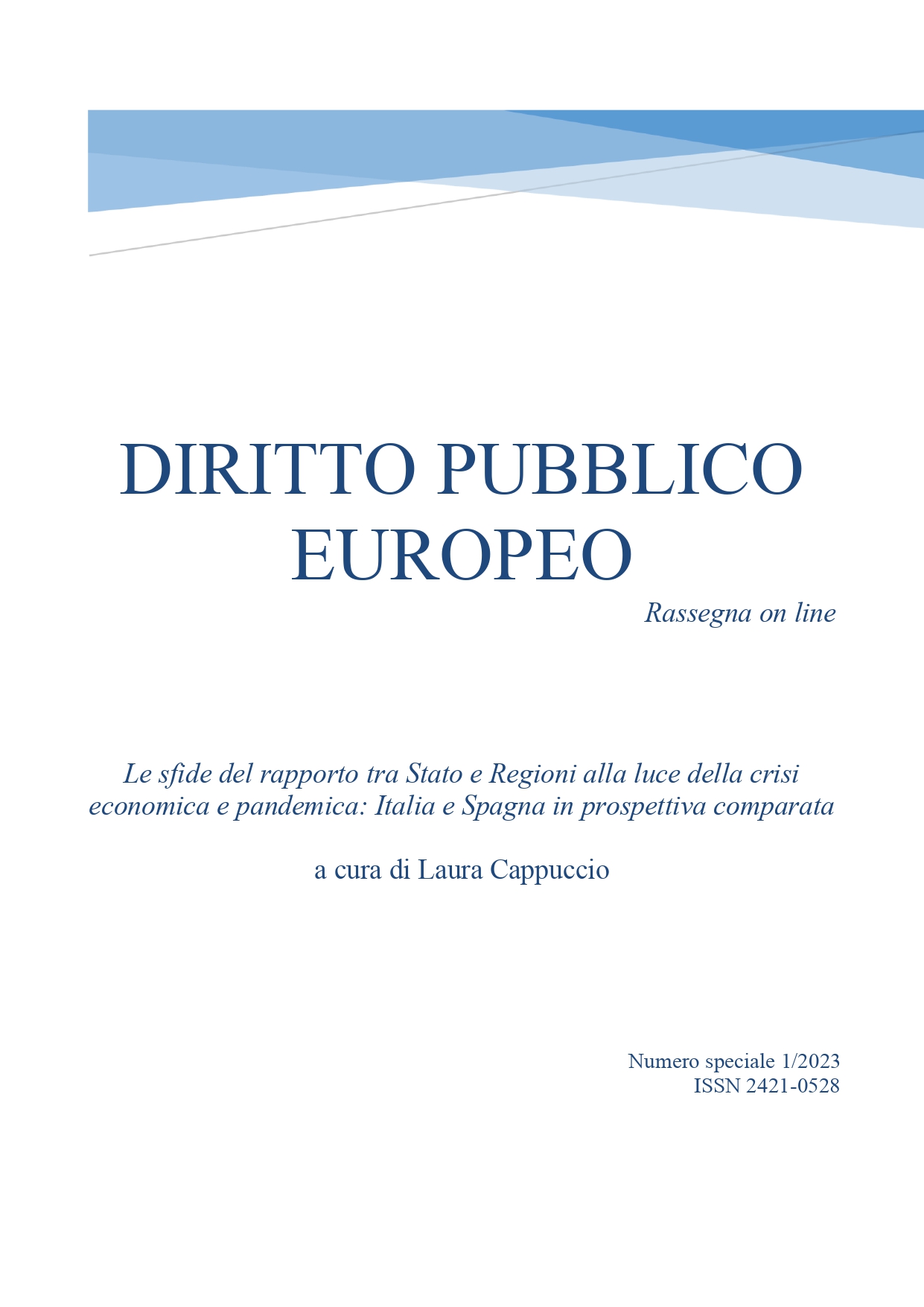The financial autonomy of Spain’s autonomous communities and the economic and monetary union: a three-phase transformation
Abstract
The most distinctive feature of the Spanish State of Autonomies is the recognition of political autonomy for the Autonomous Communities. Financial autonomy, to greater or lesser degree but nonetheless inherently, is fundamentally necessary for political autonomy. The Spanish constitutional system enshrines such autonomy, both in the constitutional text and in constitutional case-law. The Economic and Monetary Union (EMU), however, has provided the impetus for a substantial transformation of spending power of the Autonomous Communities that is directly tied to the principle of financial autonomy that derives from their constitutionally established political autonomy. This article examines this transformation. It identifies three phases of respect for Spain’s territorial constitutional model: the EMU before the Euro crisis when budgetary surveillance largely operated on the level of recommendations, the period starting in 2008 when the EMU underwent a series of fiscal crises that introduced severe conditionality and resulted in greater centralization of budgetary discipline by the central government in Madrid and a third phase involving efforts to reform the EMU and counter the Covid-19 pandemic through the allocation and management of the European funds for recovery. The article analyzes the interaction between the Spanish constitutional system and the European Union Law and reveals the role of EU Law as a decisive driver of constitutional transformation and evolution of the Spanish State of Autonomie
Downloads
Copyright (c) 2023 Juan Solanes Mullor

This work is licensed under a Creative Commons Attribution 4.0 International License.




